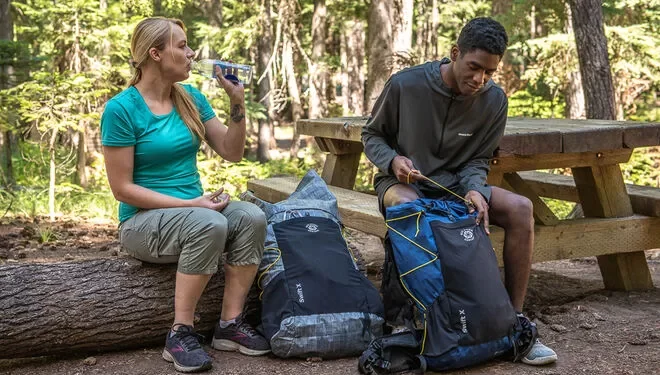What to pack for a day of wilderness exploration?

Embarking on a day of wilderness exploration can be an exhilarating experience. Proper preparation is essential for a safe and enjoyable adventure, whether hiking through dense forests, scaling rocky terrain, or traversing open meadows.
Essential gear for your backpack
A sturdy, comfortable backpack is the foundation of your wilderness exploration kit. Choose one that fits well and has enough capacity to carry all your necessities.
- Navigation tools staying on track
Even if you’re familiar with the area, always carry a map and compass. Learn how to use them before your trip. A GPS device can be helpful, but it relies on something other than electronic devices that run out of battery or lose signal.
- Water and hydration staying refreshed.
Proper hydration is crucial when exploring the wilderness. Pack more water than you think you’ll need – at least 2 litres per person for a day hike. Consider bringing a water filtration system or purification tablets as a backup.
- Food and snacks fueling your adventure
Pack high-energy, non-perishable foods that are easy to eat on the go. Trail mix, energy bars, dried fruits, and nuts are excellent options. Remember to pack a little extra if your trip takes longer than expected.
First aid kit be prepared for emergencies
A basic first aid kit is a must for any wilderness excursion. It should include bandages, antiseptic wipes, pain relievers, and any personal medications you might need.
- Sun protection shielding yourself from harmful rays
Even on cloudy days, sun protection is essential. Pack sunscreen with a high SPF, lip balm sun protection, sunglasses, and a wide-brimmed hat to shield your face and neck.
- Layers of clothing adapting to changing conditions
Weather can be unpredictable in the wilderness. Pack layers you add or remove as needed. A moisture-wicking base layer, insulating mid-layer, and waterproof outer layer are ideal. Remember, extra socks are required to keep your feet dry and comfortable.
- Emergency shelter just in case
While you don’t plan to stay overnight, being prepared is wise. A lightweight emergency blanket or bivy sack can provide crucial protection if you unexpectedly need to spend the night outdoors.
- Illumination lighting your way
Pack a headlamp or flashlight with extra batteries. Even if you plan to return before dark, unexpected delays can happen, and you’ll want a reliable light source check this.
- Fire-starting materials warmth and signalling
Waterproof matches, a lighter, and a fire starter can be emergency lifesavers. They provide warmth, a way to purify water, and a means to signal for help if needed.
Multi-tool or knife versatile problem-solving
A quality multi-tool or knife can help with various tasks, from preparing food to making emergency repairs on gear.
- Communication device staying connected
While the goal might be disconnecting from technology, safety should be a priority. Carry a fully charged cell phone in a waterproof case. Consider bringing a satellite communicator or personal locator beacon in areas without cell service for emergencies.
- Insect repellent keeping bugs at bay
Protect yourself from annoying and potentially dangerous insects by packing an effective insect repellent. If you’re sensitive to chemical-based products, consider natural options.
- Waste disposal bags leave no trace
Practice responsible outdoor ethics by packing out all your trash. Bring sealable plastic bags for garbage and used toilet paper.
With your packed backpack and mind prepared, you’re ready to embark on your wilderness adventure. Enjoy the beauty of nature, challenge yourself, and create lasting memories – all while staying safe and responsible in the great outdoors.






